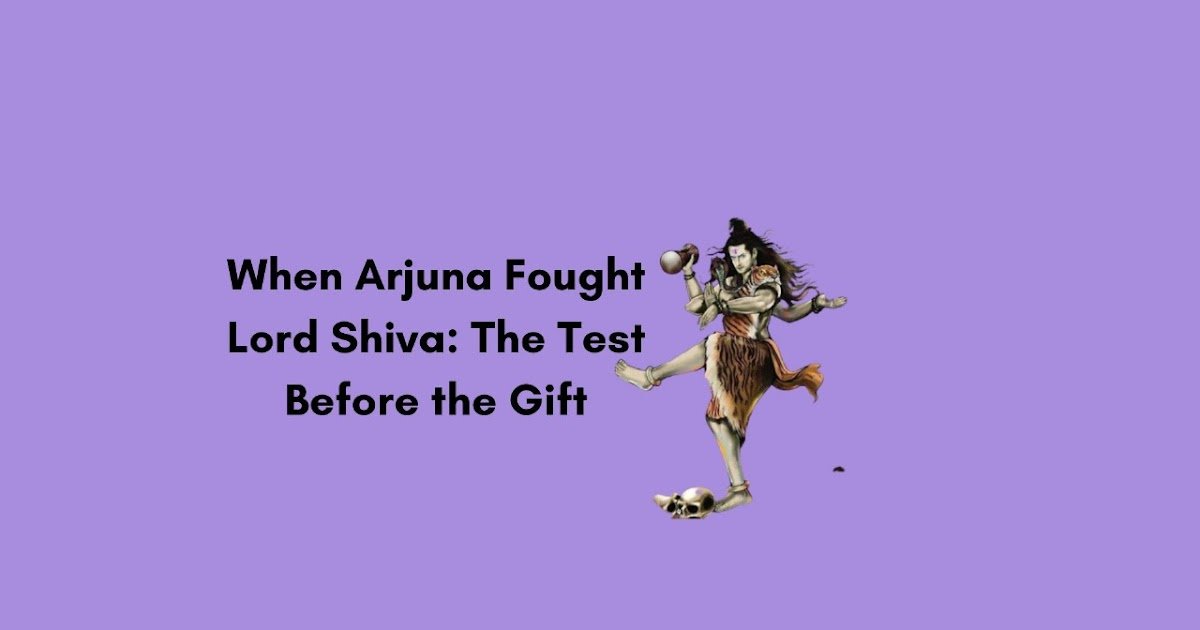Introduction
Following the notorious dice game, the Pandavas faced twelve years in exile, plus an additional year required to live incognito. During this arduous period, Lord Krishna urged them to prepare on not just a physical level, but also spiritually and mentally for the monumental battle that lay ahead. Each brother was charted a course that aligned with their innate talents—Nakula and Sahadeva were to acquire healing knowledge from the celestial beings known as the Ashwini Kumaras, Bhima focused on inner strength and combat mastery through encounters with Lord Hanuman, while Yudhishthira and Draupadi aimed to earn sage blessings through selfless service.
However, Arjuna received a more profound directive from Krishna: to meditate on Lord Shiva and obtain the extraordinary celestial weapon known as the Pashupatastra.
Arjuna departed from his brothers and journeyed to the Indrakeeladri Hills, located near current-day Vijayawada. There, he devoted himself to rigorous meditation, channeling all his thoughts and energies towards Lord Shiva. Time went on, and his dedication deepened.
Impressed by Arjuna’s unwavering devotion yet eager to test his resolve, Lord Shiva chose to manifest before him—not in radiant glory, but as an ordinary tribal hunter. Parvati and the divine attendants of Shiva participated in disguise as well, keen to observe this trial.
At that moment, a rakshasa named Muka charged at Arjuna in the form of a wild boar, aiming to kill him. Reacting instinctively, Arjuna broke his focus and shot an arrow at the creature. Unbeknownst to him, the disguised Lord Shiva did likewise. When they both approached the slain boar, they discovered it was impaled by two arrows.
A heated argument ensued between Arjuna and the hunter, with each asserting he was the one who had slain the beast. The debate escalated into a fierce showdown. Arjuna unleashed a barrage of arrows, yet the hunter deflected them with ease. Eventually, with his quiver depleted, Arjuna drew his sword, which shattered instantly. Charging forward with bare hands, he repeatedly found himself thrown to the ground by the hunter.
Exhausted and defeated, Arjuna stopped, looking towards the very deity he had been imploring—Lord Shiva. In a moment of desperation, he shaped a Shiva Linga from mud, presented flowers, and bowed with reverence. To his amazement, the flowers offered at the linga appeared at the feet of the hunter.
In that instant, a profound realization washed over him.
Overwhelmed by awe and humility, Arjuna fell at the hunter’s feet. The hunter then unveiled his true identity—Lord Shiva, accompanied by Goddess Parvati. The Lord smiled, gratified not only by Arjuna’s prowess but particularly by his surrender. He bestowed upon Arjuna the exalted Pashupatastra, a deity-like weapon meant only for one who had completely shed his ego.
Shortly after, divine beings—Indra, Yama, Varuna, Kubera—also arrived, gifting Arjuna their celestial armaments. Lord Shiva conferred upon him the title “Vijaya” meaning the unconquerable, a name that would be revered throughout the Mahabharata.
Indeed, in the Srimad Bhagavatam, Lord Krishna would later attest: “Of all archers, I am Arjuna.”
Corporate Learning: True Power Follows Humility, Not Precedes It
Arjuna’s tale transcends mythology, serving as a reflection of contemporary leadership. Prior to gaining power, he had to confront his own ego. The Pashupatastra was not granted to him upon his initial request; he was required to demonstrate not only his capabilities but also his willingness to submit. The divine did not answer ambition; it responded to consciousness.
In the corporate arena, individuals often pursue authority, prestige, or accolades. Yet, authentic power—much like Arjuna’s weapon—emerges only post-examination. You might possess talent, skills, or experience, but unless you can maintain composure under stress, show resilience in failures, and exhibit humility in achievements, your leadership journey remains incomplete.
The most distinguished professionals are not those who never stumble, but those who recognize when to take a step back, reflect, and adjust. The moment Arjuna ceased striving to vanquish and instead surrendered to something greater—that was when he received the very artifact he sought.
Excellence in any field does not stem from force but from preparedness. And such readiness is born out of humility.

